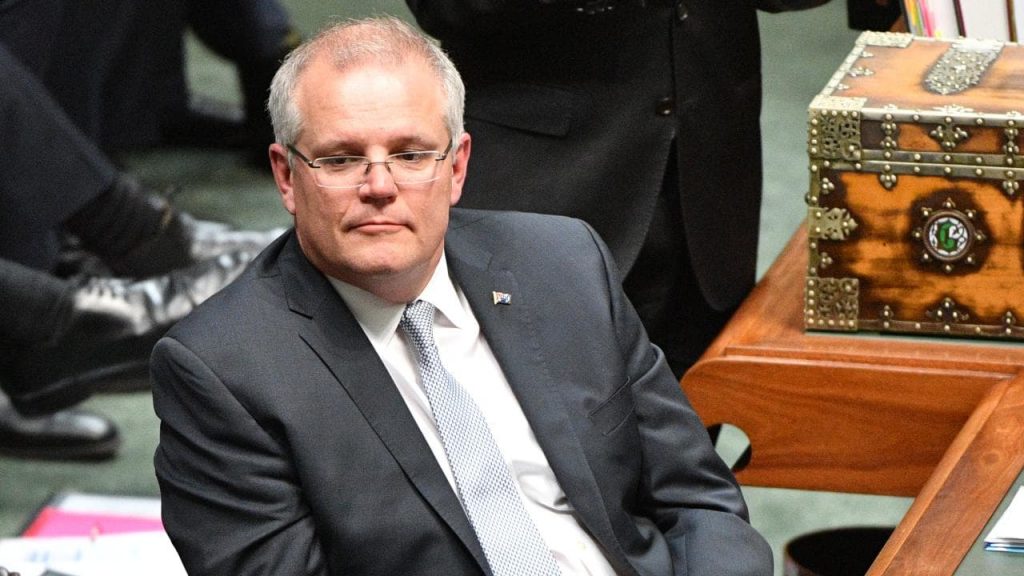IN THE MEDIA
Intransigent Tehran must be sent a message on nuclear deal
June 11, 2019 | Colin Rubenstein

The Australian – 11 June 2019
Re-elected with a fresh mandate, Scott Morrison’s government faces numerous domestic and international challenges. One key issue to be reconsidered given new developments will be Australia’s position on Iran.
US President Donald Trump reportedly discussed the issue in his first call with Morrison after the Prime Minister’s election victory, following Iran’s announcement on May 8 that it would partially withdraw from the nuclear deal, or Joint Comprehensive Plan of Action.
Trump said in a May 27 press conference following a meeting with Prime Minister Shinzo Abe of Japan, historically a major consumer of Iranian oil with good relations with Tehran, that the US was neither seeking military confrontation nor regime change but, rather, renewed negotiations that would fix the flaws in the JCPOA and block all pathways for Iran to produce nuclear weapons.
Late last year, Australia’s government conducted a review into its Iran policy and, surprisingly, decided to support the badly flawed nuclear deal despite the US withdrawal from it, while resolving to step up efforts to confront Iranian rogue behaviour on other fronts.
In the words of Morrison, these included “Iran’s destabilising activities in the Middle East and beyond … Iran’s proliferation of ballistic missiles and technology … activities undermining Israel’s security, and support for terrorist groups”.
In his last major statement on the matter in December, Morrison announced that his government “will keep the option of additional autonomous sanctions under active review”.
Now is time for that ongoing review to deliver a pivot on Australia’s stance on the Iran nuclear deal, drawing the proper conclusions from Iran’s behaviour since the 2015 deal as well as its latest threats.
The JCPOA, which due to its sunset clauses paved the way to a nuclear bomb after 10 to 15 years whether Iran chose to abide by the deal or not, has barely contained Iran’s nuclear ambitions in the three years since the understandings were reached, while the International Atomic Energy Agency’s claim that Iran has been complying with the deal appears to be diplomatically influenced wishful thinking.
Iran’s retention of a secret archive of documents related to its nuclear weapons program, stored in a warehouse in Tehran and exposed in part by Israeli intelligence early last year, is itself an ongoing violation of the nuclear deal.
In April, a panel of experts from Harvard University’s Belfer Centre for Science and International Affairs reported on its findings after analysing some of the documents recovered by Israel. The panel concluded that Iran was obligated to give the IAEA access to all relevant information, and the fact it clearly did not, and has not, is an ongoing violation.
As the report shows, not only does the nuclear archive expose the lie of Iran’s claims that its nuclear program was peaceful, “the evidence reveals that Iran’s nuclear weapons program made substantially more progress than described in the IAEA’s final assessment”.
This means the IAEA’s monitoring regime under the JCPOA is inherently inadequate, as it is based on a false premise that Iran’s nuclear weapons development was in its infancy, and was being conducted in locations known to the outside world, which was not the case.
The report also concluded that Iran’s warehousing of a “vast trove” of “detailed nuclear weapon designs … appears to reflect a desire to at least maintain the option to return to weaponisation at a later date”.
Meanwhile, the lifting of sanctions allowed Iran to increase its “destabilising activities”, including arming terrorist groups and, most recently, launching proxy attacks on US and Arab Gulf state interests in the Middle East.
Today, Iran is on the brink of ending its commitment to honour the terms of the JCPOA.
By its own estimation, it has quadrupled its rate of stockpiling enriched uranium, racing towards its 300kg limit under the JCPOA, and is promising to increase its heavy water stocks, in contravention to the agreement.
No wonder Foreign Minister Marise Payne recently has made it clear the Australian government was “deeply concerned” about Iran’s latest announcement concerning the JCPOA.
With the US ending all waivers on oil purchases from Iran, pressure from sanctions on Tehran has reached a tipping point and is beginning to show signs of softening Iran’s reluctance to renegotiate the terms of the nuclear deal.
On May 24, news reports said Iran had passed a message through European diplomats that it was prepared to talk about defusing tensions if US sanctions were eased.
Such news should be met with resolve to maintain pressure, says Mark Dubowitz of the Washington-based Foundation for Defence of Democracies.
“From ‘we will never talk’ to ‘we will only talk when you return to the JCPOA’ to ‘we will talk if you let us sell some oil’,” he tweeted the following day. “Keep up the pressure & they will be back at the table with no conditions.”
As part of a growing international consensus that the Iranian nuclear deal needs strengthening, Australia has its own role to play to maintain that pressure on Iran to defuse tensions and return to talks.





